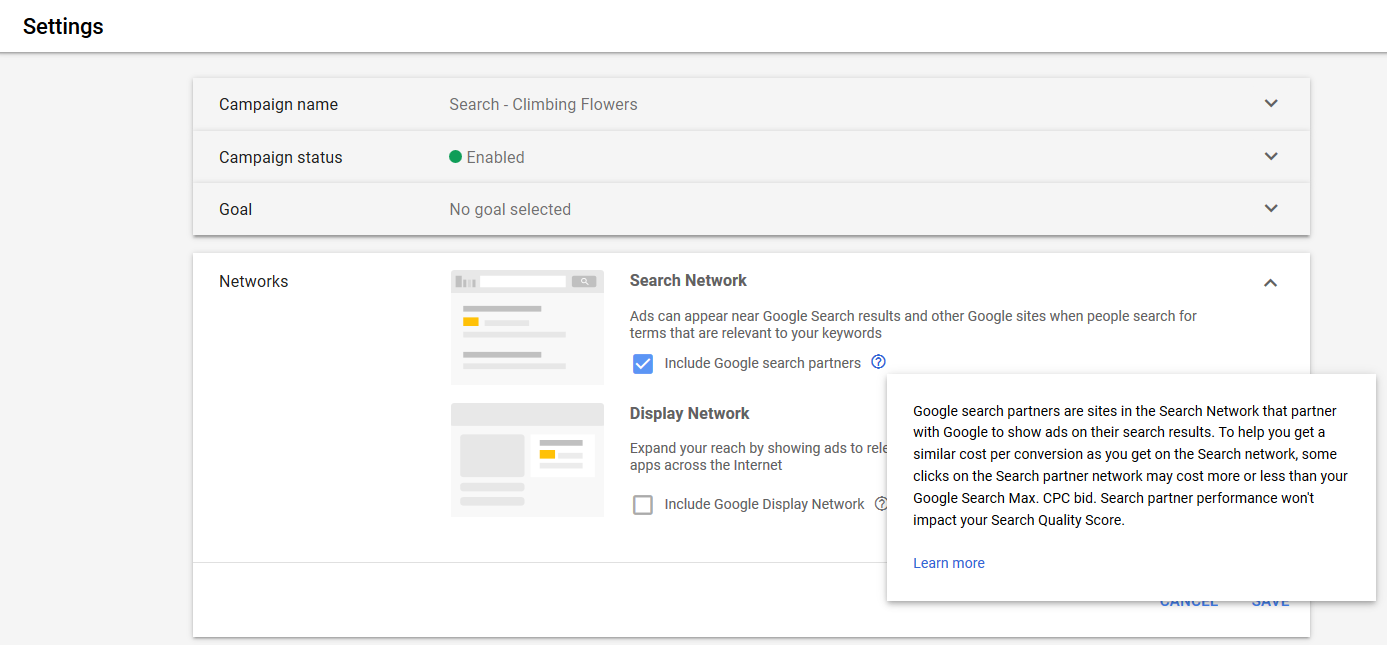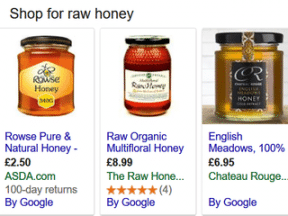A recent change by Google Ads could increase impressions by 3 to 10 percent for advertisers that use Shopping campaigns but opt out of the Search Partners network.
Here’s what you need to know.
Google Versus Partners
Google is a search engine. You go to Google.com, type in a search, and almost instantly receive a page of relevant search results.
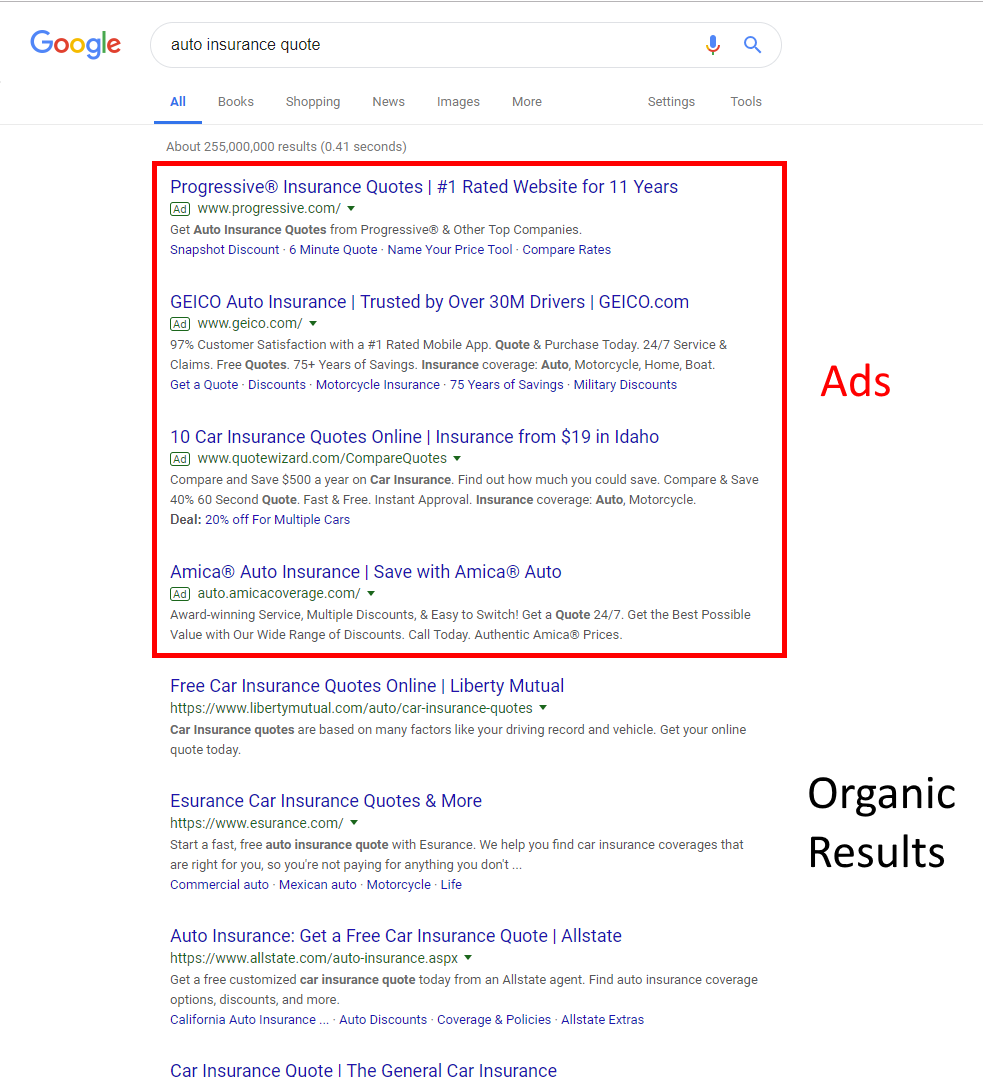
Google search results for “auto insurance quote.”
—
However, many other sites use the Google search platform, too, when people search on those sites. These sites are called Search Partners. For example, here is the same search for “auto insurance quote” performed on Ask.com.
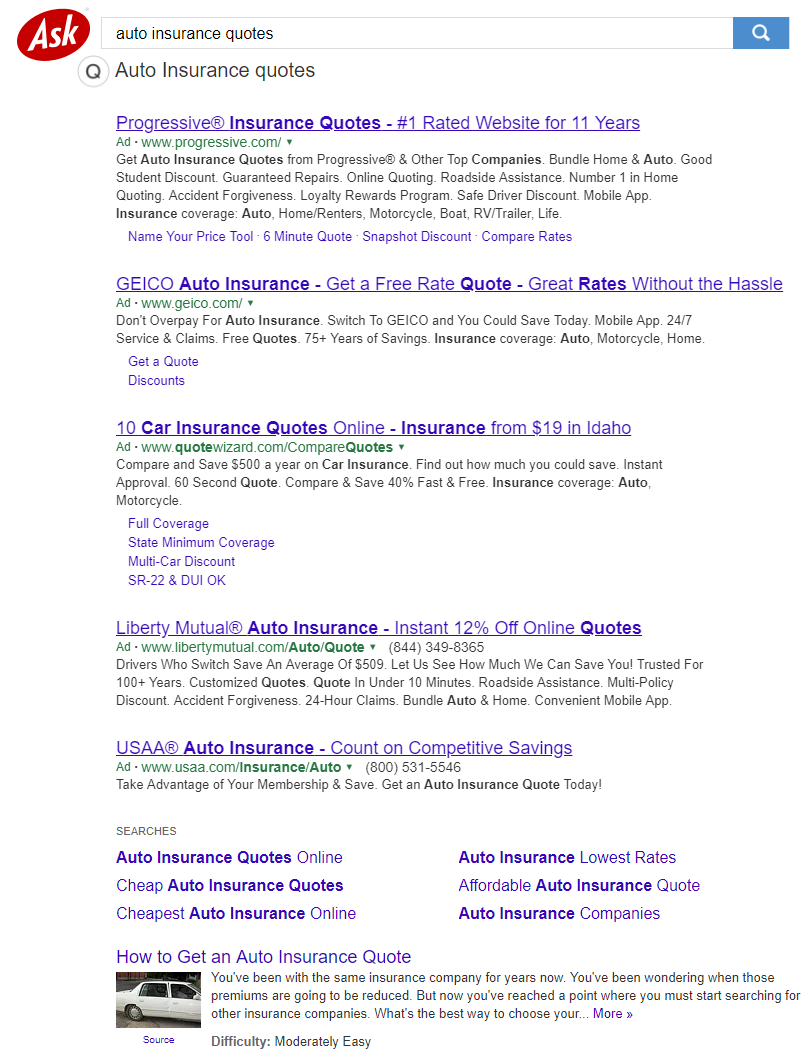
Search result on Ask.com for “auto insurance quotes.”
Looking at the first ad from Progressive, we can see that Ask.com is using Google to produce these results because the ad text is identical. Ask.com is serving many more extensions on the ad, but the H1, H2, and Description 1 lines are identical. The four sitelinks are also identical but in a different order.
This arrangement is presumably beneficial for Search Partners because they don’t have to maintain an enormous index or operate an ad exchange. They just tie into Google and then split the revenue from ad clicks.
Search Partner Performance
The default setting for Google Ad campaigns is to include Search Partners. Advertisers can then segment performance by network to see how their clicks perform on Google Search versus Search Partners. To do this, click on the Segment icon (three horizontal lines next to the Filter icon which is a funnel) and select Network (with search partners).
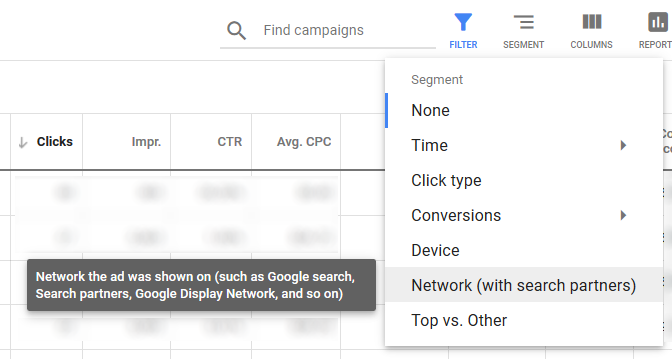
Advertisers can segment performance by network to see how their clicks perform on Google Search versus Search Partners. Click image to enlarge.
You will then have multiple rows of data for each campaign. I’ve seen accounts where performance was better with Google Search. For others, Search Partners was better or roughly the same.
Search Partners Mystery
What sites are Search Partners? You won’t get a straight answer from Google. Search Partners come and go.
Fortunately, Google provides advertisers the option of opting out of Search Partners. Under Settings in any campaign is Network option. Once expanded you can enable or disable the checkbox for Search Network.
So how can all of this potentially increase the impressions on my Shopping campaigns by 3 to 10 percent? It’s because Google just moved Google Images — a big component of the Search Partners bucket — into the core search network.
Core Search
In the past, Google Images results have been part of the Search Partners bucket. Here is the text of the email I recently received from Google.
Hello,
Google Images is a visually rich surface and a key part of millions of users’ shopping journeys every day. Users frequently turn to Google Images for idea exploration, how-to guidance, product discovery and visual imagery related to key shopping categories like fashion, home, and beauty.
We are excited to announce that we will be integrating Google Images into our core Search Network in late March. This means Shopping ads that you are already familiar with will now automatically be eligible to appear in Google Images results when users are searching for relevant keywords.
What this means for your shopping campaigns:
All of your Shopping ads will be automatically eligible to serve on Google Images. You will no longer have to opt into the Search Partner Network to show Shopping ads on Google Images.
If your campaigns currently run on the Search Partner Network — you may see a decrease in traffic coming in from Search Partner Network and an increase in traffic coming from the Search Network. This is because Google Images was previously a part of the Search Partner Network. Note: historical Google Images traffic will not be recategorized from the Search Partner Network to Search Network.
If your campaigns are not currently opted into the Search Partner Network — your ads will start showing on Google Images and as a result there may be a 3-10 percent increase in traffic at lower cost-per-click and comparable conversion rates.
Sincerely,
The Google Ads Team
Since these results pages are all images, the only ads that fit have been Shopping ads. To illustrate, here is a search result in Google Images for a Trek 3500 mountain bike.
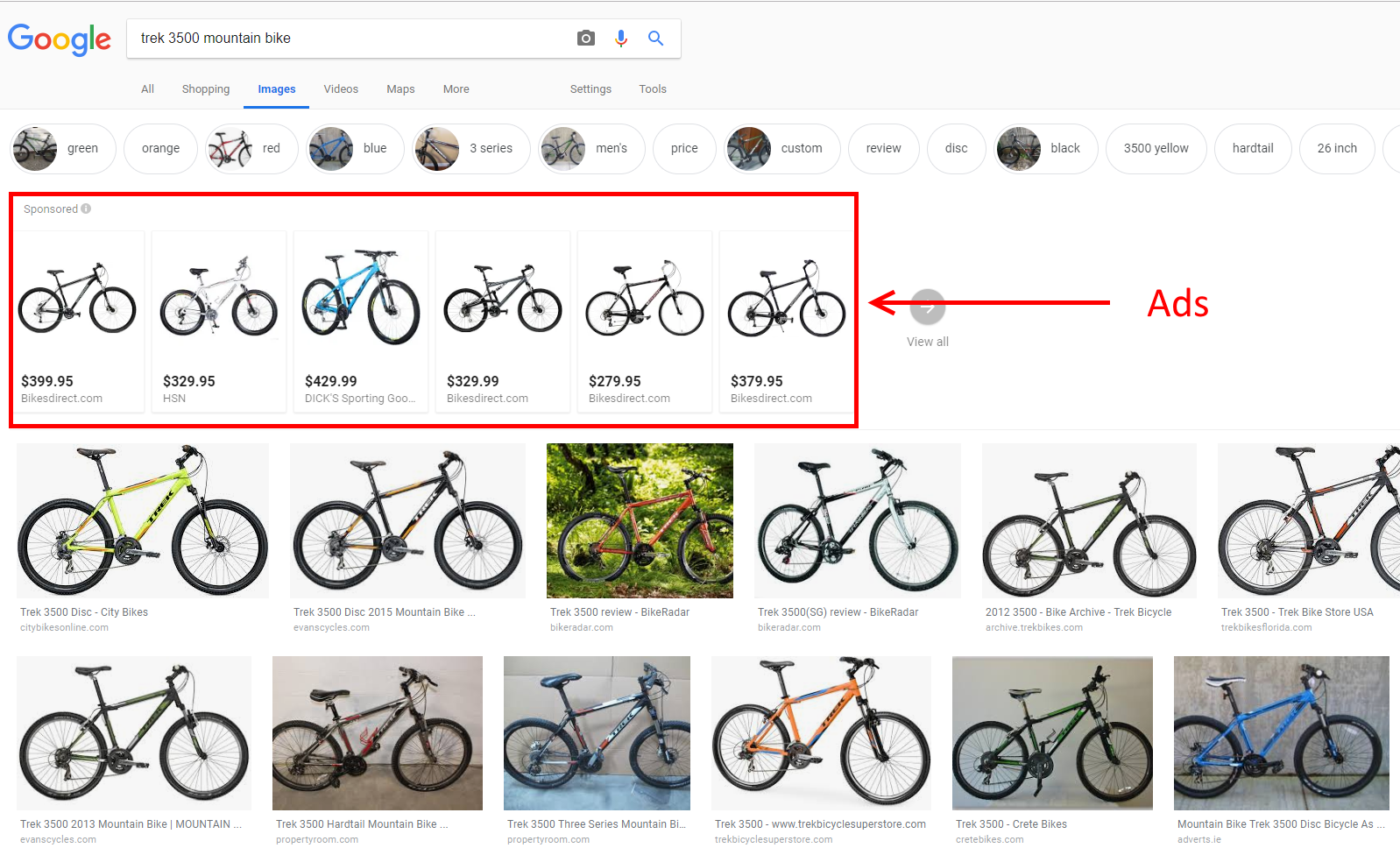
Shopping ads and organic listings for a Trek 3500 mountain bike are nearly identical in a search result in Google Images. Click image to enlarge.
There are modifiers at the top (mostly colors), a row of Shopping ads (notice the price and retailer), and then the organic results. It’s no coincidence that the Shopping ads and organic listings are nearly identical in appearance. The only difference is that organic listings have a title instead of the price.
The Takeaway
First off, this change will only affect advertisers who are running Shopping campaigns and have opted out of Search Partners. If you opted into Search Partners, then impressions will shift slightly from Search Partners to Search if you’re segmenting your data by network.
For those affected, I see one major takeaway: Your conversion rate will probably be lower.
This makes sense because users’ intent on Google Images is different than on conventional search. Google Images searchers are looking for a picture. Sure, it could be part of the purchase process for some consumers, but likely the searchers just want to see a picture. The lower cost-per-click from Google confirms this.
Keep an eye on your accounts. If Google discounts the CPC enough, even a lower conversion rate can be a profitable addition to your campaigns.

